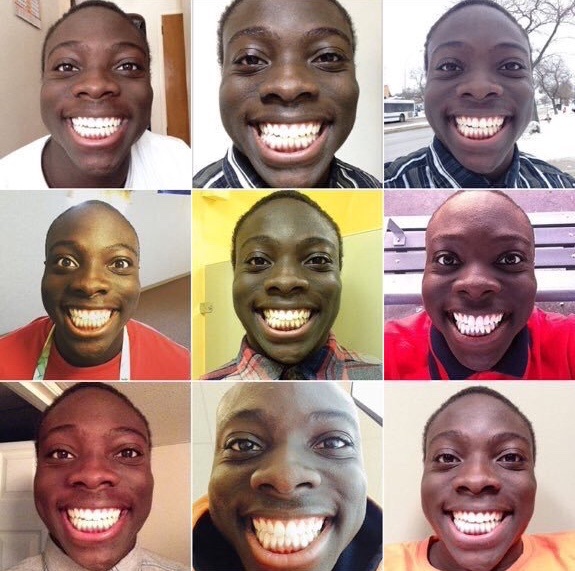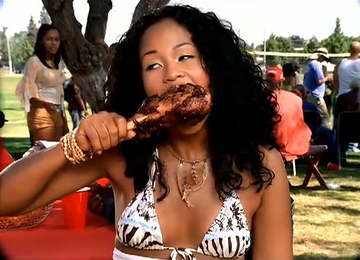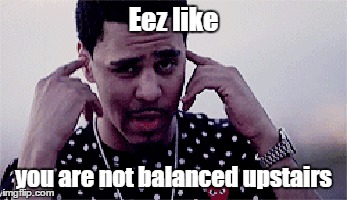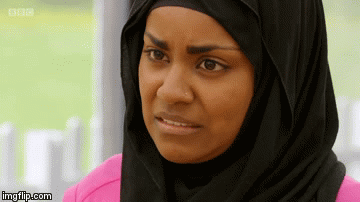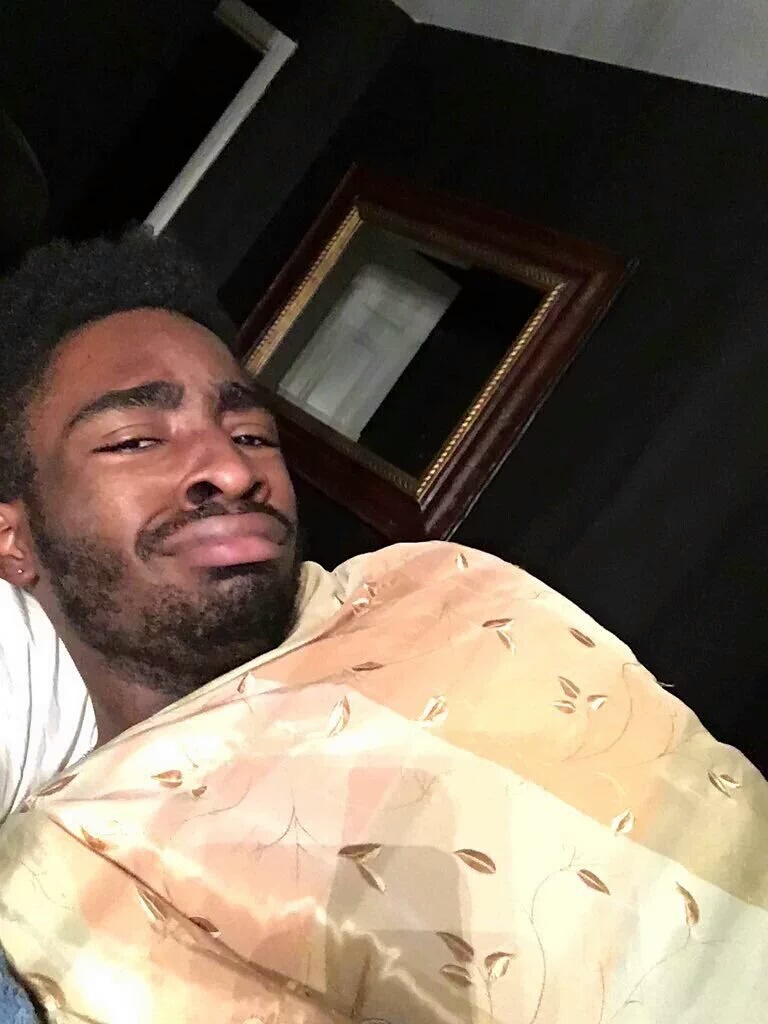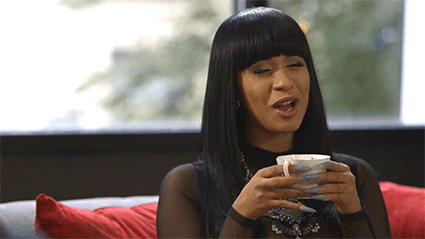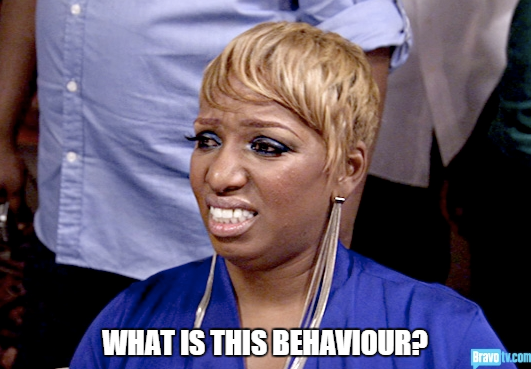Even with your eyes closed we’re sure you’d ace this Islamic New Years’ quiz.
Don’t fall our hand:
wordpress-seo domain was triggered too early. This is usually an indicator for some code in the plugin or theme running too early. Translations should be loaded at the init action or later. Please see Debugging in WordPress for more information. (This message was added in version 6.7.0.) in /home/bcm/src/dev/www/wp-includes/functions.php on line 6121
Even with your eyes closed we’re sure you’d ace this Islamic New Years’ quiz.
Don’t fall our hand:

Navigating Nigeria as a queer person can be difficult. Tack on being Muslim, you get an extra layer of hardship, especially during holidays celebrated with family. In this article, we spoke to six Nigerian queer Muslims about how they celebrate Ramadan, the conflict between their sexuality and religion, and how they celebrate Muslim religious holidays.
I often celebrate Eid and most festive periods alone or with a few friends. The only time I’ve celebrated with my birth family was during the part of the lockdown when I wasn’t in school. Eid is just another day for me. I want family members to normalise sending adults owo odun (Eid money), sha. Just because I am an adult now doesn’t mean I don’t deserve money. I’m sending hugs to all the queer Muslims that had to celebrate Eid alone or with family members who don’t welcome them.
RELATED: 9 Nigerians Talk About Being Queer And Religious
One thing about Eid that I hate is the reunions! I detest it! It’s that time when family members or acquaintances update their database on your body size, accomplishments, and life choices. I celebrate Eid with my family; my birth, chosen, and forced family!
I want to celebrate Eid with my friends for a change. It’d be nice. Just because we’re family members doesn’t mean it’s your job to analyse and grade my life on a scale of your life experiences. In that regard, if I ever come out to them, I know what to expect.
I’m past the stage where I struggled with my religion and sexuality. I’m living the way any heterosexual person would live their life. I no longer think my sexuality is a sin. I refuse to believe that the supreme being would be mad at who I choose to love. I only have issues with society dictating their indoctrinated ideas.
I’m not too fond of the stress. Why do I have to do so much just because we want to eat?
I also hate not having Eid cloth. My mum missed it one time and decided not to continue. Not this year, though. I fought for my Aso odun (Eid cloth).
When I was younger, people gave me Owo odun (Eid money) but not anymore. I still don’t know what changed.
Most Importantly, I hate the internal conflict that comes with the holiday. Why am I even celebrating? Do I agree with most of the teachings and doctrines? Am I still a Muslim? I’d also love to celebrate knowing that I am fully accepted and loved by my family, regardless of my identity.
That’s why it makes me sad to think about the rejection I’ll face from my mum and the Muslims I know if they find out I’m Queer. I wonder if I’ll still be able to celebrate Eid with my family after that. I mean, Islam shouldn’t be a monolith.
If you’re a queer and reading this, you are valid and amazing.
I usually celebrate Eid with my family, but it was just my partner and me last year. I spent it this year with my partner and their family, even though they don’t know we are dating. At least, I got to avoid questions from my family about marriage. I missed cooking for everyone sha. I live for the satisfaction on their faces. Ideally, I’d love to spend Eid with my chosen family.
I’ve learnt to keep the relationship between Allah and me personally, shutting everything else because it does no good. It helps me struggle less with my sexual orientation if I don’t think about it too much.
A year ago, I celebrated Eid with my immediate and extended family. We all went to my grandparents. During Ramadan, I hate the million and one questions people ask like “How’s school? Do you have a boyfriend now? Or how’s work? And the unsolicited comments like ” You’ve gained weight”. I like Eid money, even though they don’t give that anymore. Can’t they see how deep in the trenches I am? Besides that, I don’t know that there’s a way I’d want to spend a religious holiday. I want to treat it like a typical day where I just chill and exist. Maybe it’s because I struggle to reconcile my religion and sexuality. It’s crazy that the god who supposedly made me in my entirety( sexuality and all) hates me and will make me burn forever. On the other side is religion. It’s a part of me and has become a conflicting battle when I think about it. So I try not to. It makes no sense that my religion supposedly hates me, and I’m supposed to love and practise it. It doesn’t sit well with me, but I’m figuring it out sha.
ALSO READ: When a Queer Friend Comes Out to You, Here’s How to Be Respectful


A hijabi can be explained as a muslim woman who wears a hijab. We got 10 Nigerian women to share why they started wearing a hijab, and how being a hijabi is dealing with a lot of identity erasure, stereotyping, fetishization, and Boko Haram “jokes”.
I was motivated to start wearing the hijab after seeing my friends in it and attending Islamic camp every December. Now, I still wear it because it makes me more comfortable, confident, and I feel closer to God. One thing I really hate, is the constant fetishization by men. A couple of days ago, someone told me to my face he heard “Alhajas are very good at giving head”. He also said “All your clothes make me want you more”, and he heard “Alhajas are very good in bed”. Another thing, is that Muslim men should stay out of hijabis business. We had a clubhouse discussion for women only, and Muslim men were infiltrating. Someone even came to the Twitter to start making jokes about it, like we are not allowed to be sexual beings too. Lastly, people also expect you to be able to take Boko Haram “jokes”, or be apologetic for Boko Haram’s atrocities.
I’ve worn the hijab since I was a kid, but in the secular schools I attended, I didn’t wear it. I’ve seen people get insulted for wearing the hijab in open spaces, but it has never happened to me. When I finished secondary school, I stopped wearing the hijab and started tying scarves. I read the Quranic verse that enjoined Muslim women to draw their head covering over their bosom, and I started to wear it again. People should understand that while we dress to show that we are religious people, ultimately we are humans and have flaws. No one is perfect and although we strive to be good people, we are not necessarily better than others.
I’ve always been a bit in and out of it as both my parents are devout Muslims, but I’d say taking it more seriously when I was like 17-18. I got to be more in touch with my religion and my relationship with my creator. Hence, I gained more in-depth knowledge of the hijab, what it stands for, and why I should wear one. People tend to assume that hijabis are pretty stuck up people who have no lives outside of the hijab. They also think we can’t relate to things like poetry, politics, movies, books etc. Also, they think hijabis are being oppressed or forced into wearing one. Everyone talks about how women should be allowed to be expressive, I wonder why that does not apply to hijabis as well. Lastly, the hijab isn’t a symbol of war or terrorism. As funny as this may seem, I’ve had people look at me weirdly or even whisper “Boko Haram” when I walk down the road.
I’ve been wearing the hijab since I was a child. I grew up seeing it as a part of me just like other clothing. From a very young age, I knew why I was wearing it and I wanted to keep it that way. I wear my hijab because it’s a commandment from Allah, and it was designed to protect women. I would not say wearing the hijab has affected my day to day life. I’ve kind of created a life for myself where I don’t have to compromise on my hijab because it’s non negotiable to me. I remember when I was growing up, and I had to write an exam outside my school. I was sent out of the exam hall because of the hijab. The woman insisted I take it off or she won’t let me write the exam. I decided I’ll stay till the paper was over just to make sure she won’t let me in. After being delayed for some minutes, other students started shouting till she let me take the paper.
The incident shook me because not only did she try to take off my hijab, but also accused me of carrying expo under it. It was also shocking because she was a Muslim woman too. I live in England now, and I don’t think there’s a bog difference with being a hijabi here and in Nigeria. Maybe except for the strict laws in place, so people tuck in their feelings more. Even though I know no one might attack me, I still look over my shoulder because you never know when someone would be disgusted to see a Muslim woman in a hijab.
Something I have noticed, is that people don’t want to get rid of the stereotypes on what Muslim women can do, and it was clear when they spoke to me. I am a creative, I go for auditions, do photography, production. A lot of the time, the conversations never seem to care for the minority that was me. I think I’ve grown to block out the noise. Now, I create spaces that help Muslim women feel comfortable. Honestly, me not wanting people to not treat hijabis differently is not really for me, but for other young Muslim women.
We grew up with Islam and once I grew old enough, I wore the hijab. As a 10/11 year old, I didn’t really know why I wore it. All I knew was that our way of dressing was to wear long clothes, and cover the hair. As I grew older and started studying and learning about my religion, it appealed to me. I wear hijab because God’s says so in the Quran, and because it is an act of worship. There are other perks to it as well, like the sense of community it brings but first and foremost, it is a religious obligation. There’s this stereotype people have about Muslim women in general. People think we’re docile, meek, demure and can be ridden upon. So, no one bothers to learn your name; you’re just an Alhaja who doesn’t talk too much.
Hi there! While you are here do you want to take a minute to sign up for HER’S weekly newsletter? There’ll be inside gist from this series and other fun stuff. It’ll only take 15 seconds. Yes I timed it.
I started wearing the hijab at a time when I was suffering from a major identity crisis. I was testing out different things and in that period, I stumbled on a verse that told women to cover their awrah, so I thought why not? It was later on during the journey that I got on board with the “this is what Allah ordered” train. I liked it, and I sort of found solace in my new identity and Islam. I was struggling with a lot of things, but random people telling me “As-salamu Alaykum” because of my hijab made me feel less alone.
People tend to expect hijabis to take everything without getting angry or upset. We’re supposed to be the embodiment of easy going, patient, nice and all things good and it does not work that way.
I started wearing the hijab when I wanted to get into the University. It was a fresh start, a new me. I had also been planning to take up that new identity for nearly a decade at that point, so I was beyond ready.
Waiting was something I did, because I did want to put in on then take it off. I also did not want no influence on my journey. Outside of it being a religious obligation, the hijabi lifestyle aligns with my personality. I’m not the short skirts, short dresses kind of person. So, something about being a hijabi makes it easier for me to be myself and to wear clothes that I’m most comfortable in. It feels like I’m home. Honestly, I’ve felt uncomfortable going into certain places because of my hijab. Places like events without representation. If I am invited to a place and not see anyone that looks like me, I’ll just turn back. The one thing I hate so much is this Alhaja thing. It is so annoying, and they use it to put you in a box. I have also noticed it is not a thing with non-Nigerians here in England at all. It is so silly, and a form of identity erasure.
It’s practically an obligation in my religion, so I wear it to please my Lord. Most people see it as being overly religious, even fellow Muslims. Meanwhile, the fear of God and the need to do more to just practice my religion to the best I can is why I keep wearing the hijab. I think my biggest struggle is the fact that I am a law student, so I am supposed to look “corporate”, and no one would want to employ a woman who prefers long dresses to fitted skirts. It is confusing because I’m offering my brain, isn’t that what is needed to help your company? Also, I want people to stop thinking I will steal something in a store and hide it under my hijab. The extra attention we get from store attendants is unnecessary.
I started covering my hair at University. One day, I didn’t want to brush my weave to class because I was lazy. I was staying over with my friend who was a hijabi so I borrowed her scarf to class that day. The next day, I did the same. I ended up covering my hair through out that week without realising. After, I decided that it was way better than stressing over my weaves and I began to just start covering my hair. I haven’t stopped since then. I researched more about my religion, and I found out that your parents can give you religion but you have to find faith yourself.
In Nigeria, you don’t get the stares as you would abroad. You also don’t get asked ignorant questions like “do you cover your hair in the house or when you shower”, or “do you have hair underneath your scarf.” However, in Nigeria, some think you are forming holier than though. Also, just because I am a hijabi does not mean I am a better Muslim than those that aren’t. I believe everyone is on a different journey or path when it comes to religion. It puts pressure on hijabis, because you are expected to be perfect and that is so unfair. I am not perfect. We all make mistakes, we all sin. Allah didn’t create us to be perfect, we are all beautifully imperfect.
I started wearing it in primary school around the age of 8/9 and I guess my mum just wanted me to get used to the idea. I was 9 going on 10 when I started wearing it fully, and I continued largely because that’s how I was brought up, and I was comfortable with it. While I was in the north, I did start to think of experimenting. I’d see my classmates pictures when they go home and they’ll just tie a turban or some won’t even cover at all.
My hijab was more conservative. No trousers; just skirts and socks. This continued till my third year in the University. In the third year, I started experimenting again with trousers, long tops and kaftans. By the second semester of my fourth year, my socks had gone. but I still wear skirts or trousers, as the spirit leads. When you wear a scarf, people might be more approachable. When you wear a khimar, people stay away but are more respectful. Conductors, customer service representatives treat you with patience, and are more kind to you.
Currently, I’m still vacillating between the turban and wrapping my scarf around my head and neck. My parents don’t know I wear a turban now, only my sisters know. If my mother knew, she would kill me. She’s very black and white, and even me wearing trousers always causes fight. If she finds out, she’ll say I’ve embarrassed her. Honestly, she fears for my hereafter and I understand, but it’s not to live a lie in your faith.
For more stories about women’s experiences, please click here


With the shutdown of the holy city and the uncertainty of this year’s Ramadan, we spoke to three Muslim health workers. They tell us about juggling Ramadan with working on the frontline.
Aminat (Nurse)
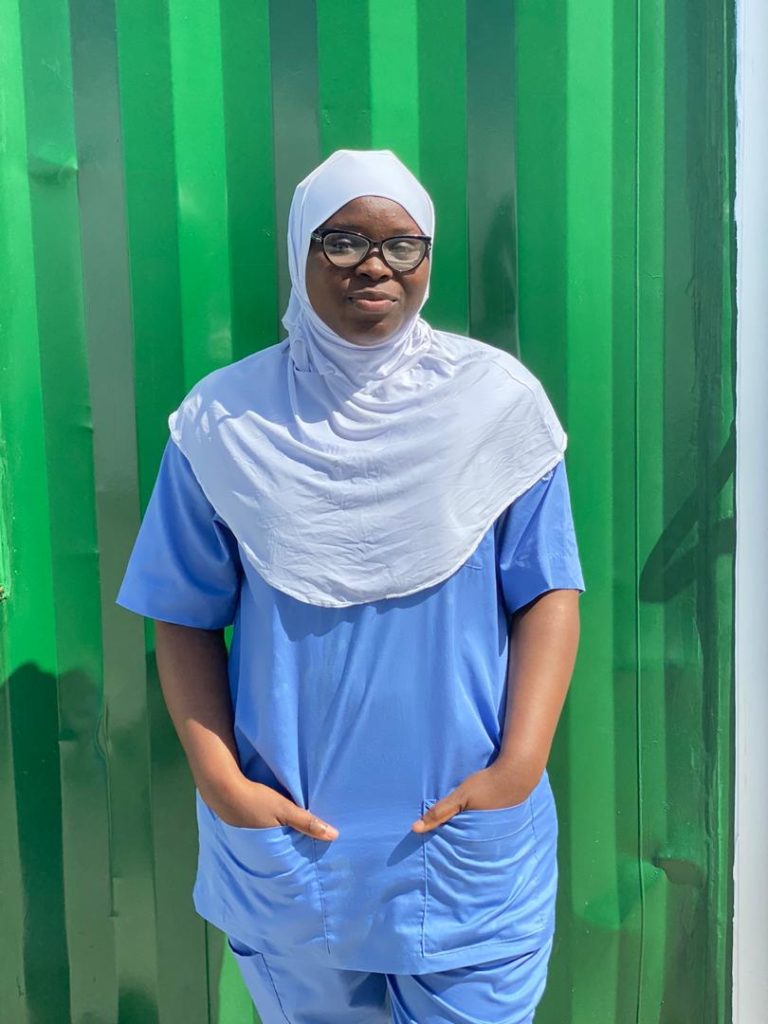
Ramadan hasn’t been very hard. The only difference is that I don’t get to eat what I want to eat, and I am not with family. Because of the nature of my work, the hospital provided hotel accommodation for us. That means that I don’t get to go home and I have to eat whatever the hotel provides.
Olamide (Doctor)
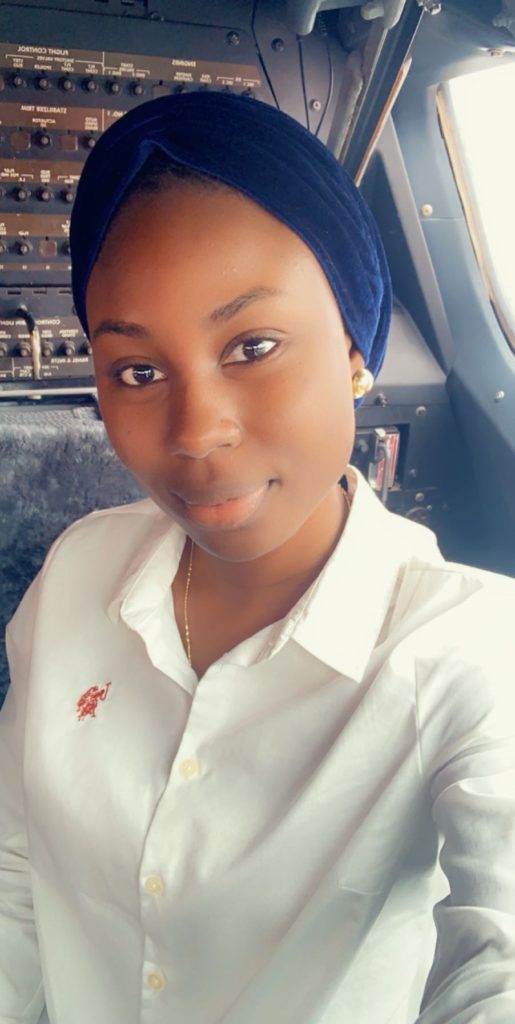
I can’t remember the last time I did proper Ramadan at home. From uni to house job, I have mostly done Ramadan alone as an adult. The only difference was that then, I could go home to spend some time with my family, but now I have to stay in a hotel provided by the hospital. It’s nothing out of the ordinary for me because I am used to fasting alone.
Aminat (Nurse)
Ramadan this year is different because I can’t afford to miss Sahur. I know that missing it will be problematic because carrying PPE requires energy. When Ramadan started, the first thing I did was call home to make sure that they always wake me up by 4 am, no matter what.
Laide (Doctor)
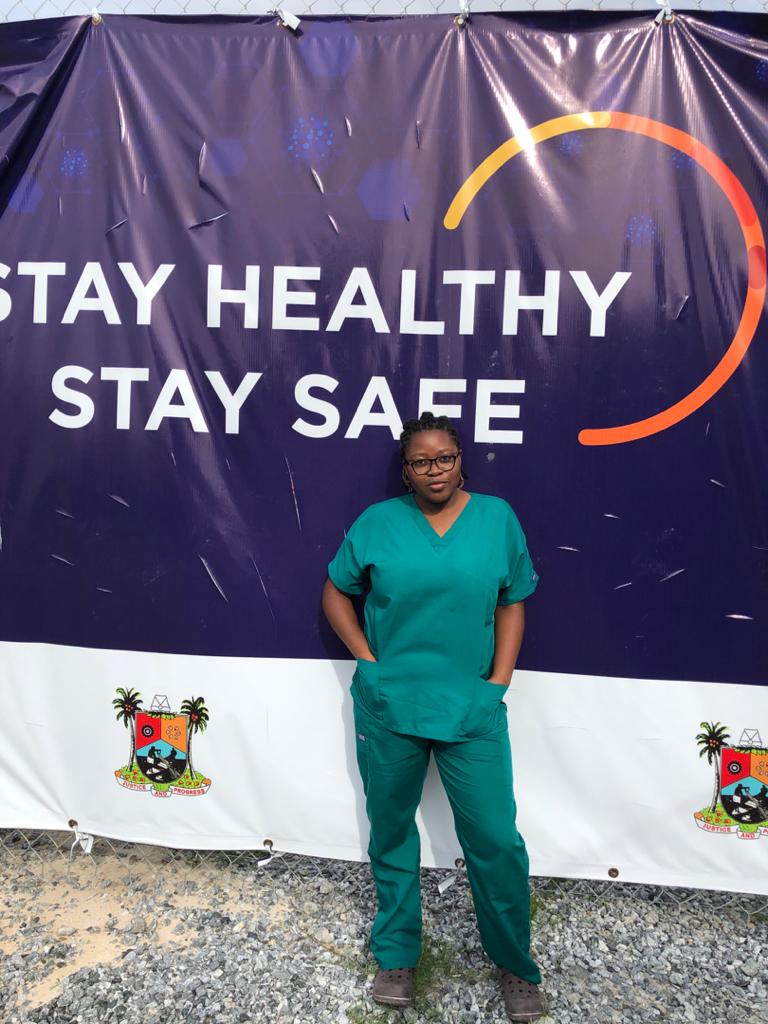
In school, I was the only Muslim in my room. Most times, I had to wake up to eat Sahur and Iftar alone. So, it’s not really different. The major difference is a hotel which is not convenient food-wise because you have to eat whatever they give you. The hospital put us in a hotel to reduce the risk of infecting our families.
Laide (Doctor)
My last Ramadan was a bit different because I was in Dubai. The iftar there is a celebration – There’s food, people, it’s a big deal. But this year, it’s just me eating alone in my hotel room or eating at work like any regular person.

It’s a bit solitary because there are just three of us here who are Muslims. We work in different units and different shifts. So, it’s just you, your God, and your Ramadan. To be fair, it doesn’t feel like it’s Ramadan here. Except for the three Muslims here, everyone else is just going about their usual business. We are the ones telling them that we are fasting.
Aminat (Nurse)
It also doesn’t help that there aren’t a lot of Muslims around or on similar shifts, so I am very lonely. No one to remind me to read my Quran, or tell me when it’s time to break. Sometimes, I just sit alone in a corner.
Olamide (Doctor)
It helps that one of my family friends who is a doctor is here with me. We work the same shift, so we do Sahur and Iftar together. It’s nice to have someone to do all of that with.
Aminat (Nurse)
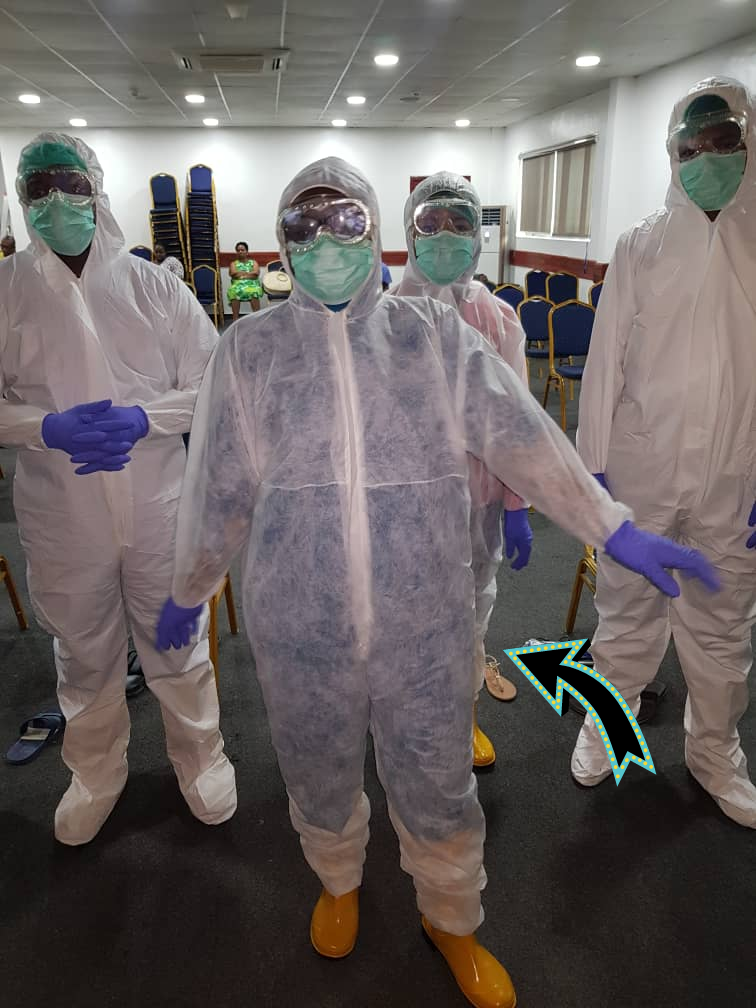
My teammates are very nice. In situations where I don’t feel like going in, they offer to go in. This is important on days where I had very light Sahur and I am weak. Also, wearing the PPE leaves you dehydrated because of how hot it is. So, it’s very nice when they offer to go in.
Laide (Doctor)
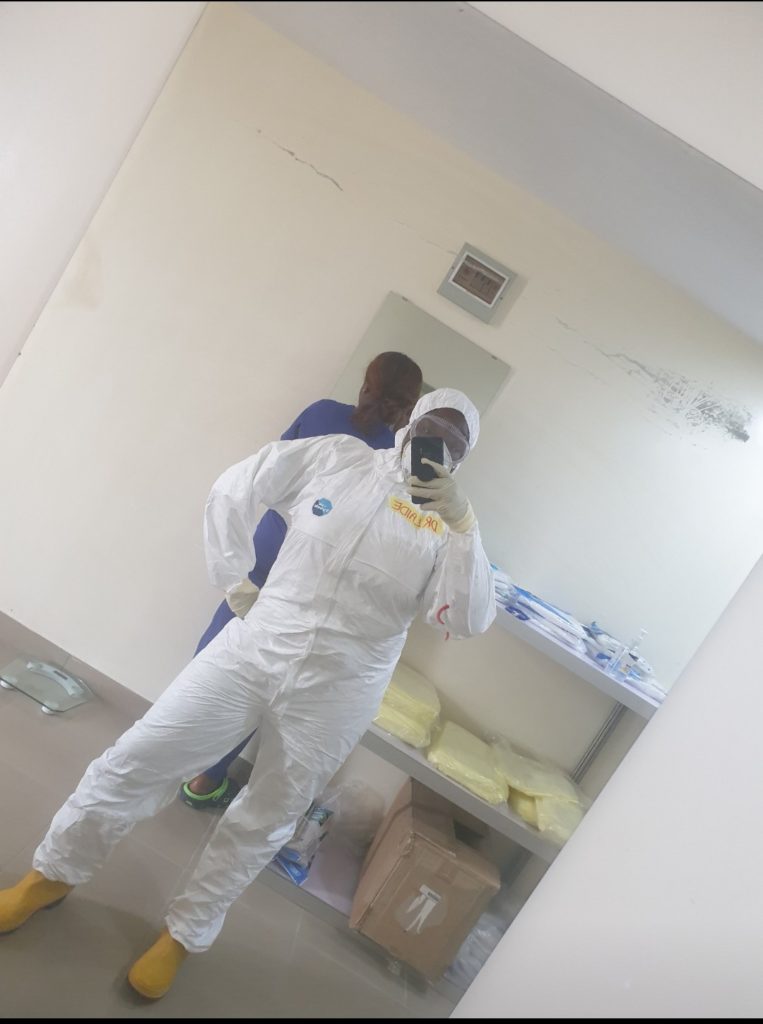
In the beginning, it was weird because wearing PPE makes me hot and dehydrated. On the first day of Ramadan, I didn’t eat proper Sahur. I had to go into the ward wearing PPE and we had a lot of admissions. What stood out for me from that day was that I was very thirsty when I came out. I don’t remember ever being that thirsty in my life.
Olamide (Doctor)
Any day I have to wear PPE longer than usual is a difficult day. This happens on days where there are a lot of samples to collect and patients to see. I try not to miss Sahur so I can be at my best.
The PPE is made from nylon. It is unbreathable. That means no air is getting to your skin and whatever is inside the PPE. It feels like you are trapped with all your body heat. Nigeria is hot, so on a sunny day, it’s ten times worse. No matter how cold the A.C is, you won’t feel it; you are sweaty and uncomfortable. It’s not like coming out and removing the PPE is a quick process. It takes at least 15 minutes to decontaminate you. So, if 12 people go in, you have to wait until it’s your turn. It’s really uncomfortable.
When people come out, the first thing they reach for is a bottle of water. That’s where it can get tricky for people that are fasting. Because of this, a lot of Muslims aren’t fasting at the moment.
Olamide (Doctor)
I think one of the most difficult parts is looking for what to eat. The hotel provides us with food but sometimes you want to eat a certain meal for iftar and that option isn’t there. It’s not the same as preparing your own meal and planning ahead. I just have to eat whatever they provide.
Laide (Doctor)
This year, I made the decision to eat well. But it’s not about food, it’s the thirst. I need to have something in my belly because I don’t want to add hypoglycemia to my dehydration troubles.
Because there are only three of us here, there’s no special arrangement for food for us. We have to sort ourselves. The hotel provides breakfast, lunch, and dinner, so people convert either their breakfast or dinner to Sahur. I had to get a microwave because the hotel doesn’t come with microwaves in the room. Using it to warm my food during Sahur has been super helpful as opposed to eating cold food.

Laide (Doctor)
I am fasting because I don’t feel like I qualify to not fast. I saw the Fatwa about not fasting if you are on the frontline. I don’t think I could have not fasted and been comfortable because I don’t see the difference between doing this and regular hospital work. For me, this is my regular job. I didn’t think it was going to be difficult. Or unbearable. To me, not fasting was never an option and it never crossed my mind.
However, I understand that anyone not fasting on the frontline has their own reason for doing so.
Everyone’s case is peculiar. For me, it was never an option because I evaluated my experience and I knew I could handle it.
Aminat (Nurse)
I can’t remember the last time I completed Taraweeh. It’s not easy. Sometimes, on the night shift, I don’t get to pray Ishai till past 10 pm (I normally pray at 8 pm). And that’s after attending to patients. It can be difficult to complete Taraweeh because I am already tired by then.
Olamide (Doctor)
Fortunately for me, I don’t sweat a lot so that part of Ramadan has been easy for me. I am committed to fasting because I enjoy the fulfilment that comes with it.
I don’t think about it that much because I chose to volunteer. I wasn’t going to volunteer, at least not in this capacity, but an incident changed my mind. I heard about the patient who didn’t disclose his travel history in Luth. So, whether or not I am in an isolation centre, at the end of the day, I am going to be exposed to Coronavirus. Because you don’t know the history of whatever patient you are attending to.
I’ll rather be in a place where I know this is what we are managing so it’s not a surprise. At least, if you are aware, you are more careful. At the end of the day, every health worker is at the risk of exposure.
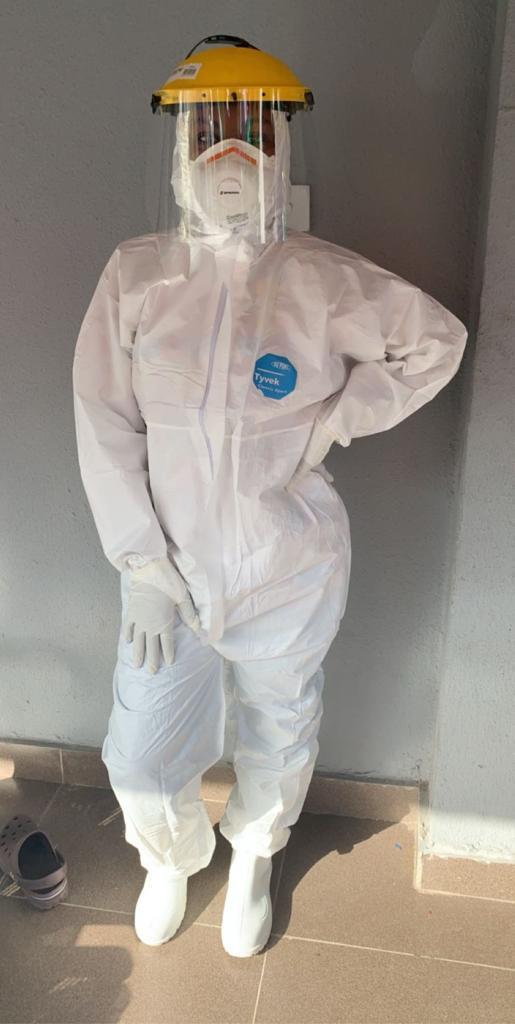
Olamide (Doctor)
When I was moving to the hotel, I had to go to my apartment to pack some stuff. On getting home, my flatmate saw me, ran to her room and locked herself.
Laide (Doctor)
Unlike other parts of the world where they appreciate you for being on the frontline, in Nigeria, it’s “don’t come to my house!” In the beginning, there was stigma from the hotel staff where we were staying. They were scared, so we had to re-educate them and re-orientate them. I have also had to adjust the way I dress to make them comfortable. Even though the hotel is a walking distance from the centre, I can’t wear my scrubs from the hotel. I have to wear my regular clothes from and to the hotel.
Some people even have to show others their negative test results before they are comfortable around you. It’s that bad, but it is what it is.
Aminat (Nurse)
Being a Muslim already comes with its own stigma. When you add Covid-19 stigmatisation, it becomes a lot worse.. But I will be fine. At least that’s what I tell myself every morning.
Olamide (Doctor)
Because we can’t leave the hotel and isolation centre, I find myself missing my friends and family. It feels like I am in a routine – go to work, come back, stay alone in my hotel room.
I try to stay in touch with my family through video calls. I am constantly updating them with what’s going on at work and they update me with theirs. I’m looking forward to when this is over. I miss my old life.
Aminat (Nurse)
I am used to spending Ramadan alone and away from family. However, the last ten days are special because I get to go home. I go for Itikaf where I catch up with friends, family, and generally bond together as a religious community. It’s kind of like a reunion. Funny enough, I had plans for this year’s Itikaf because I missed last year’s. Sadly, Corona has prevented that.
Laide (Doctor)
I’ve been avoiding going home. I am worried about infecting my family. Especially in a case where I am asymptomatic. I really wanted to see my Grandma but I cannot afford to infect her.
When this is over, I am going on dinners, travelling… It feels like my life is on hold. Covid-19 derailed a lot of plans and the world is never going to be the same. Even though I can’t envision what life would like in the aftermath of this virus, I am looking forward to the new normal.
Glossary:
Fatwa – a ruling on a point of Islamic law given by a recognized authority.
Sahur – the meal consumed early in the morning by Muslims before fasting (sawm), before dawn during or outside the Islamic month of Ramadan.
Iftar – This is the evening meal with which Muslims end their daily Ramadan fast at sunset.
Taraweeh – refers to additional ritual prayers performed by Muslims at night after the Isha prayer.
Itikaf – an Islamic practice consisting of a period of staying in a mosque for a certain number of days, devoting oneself to worship during these days.
If you enjoyed this, you should read this next: A Week In The Life Of A Nurse On The COVID-19 Frontlines.

“A Week In The Life” is a weekly Zikoko series that explores the working-class struggles of Nigerians. It captures the very spirit of what it means to hustle in Nigeria and puts you in the shoes of the subject for a week.
Today’s subject is Imam Nojeem Jimoh. He tells us how he’s navigating Ramadan using technology in this special time.
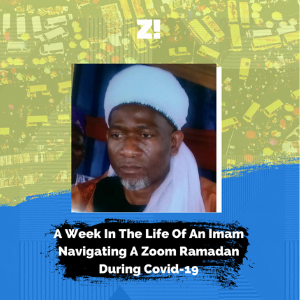
I wake up by 4:15 am today. I pray two rakats and make dua until it’s time for fajr. In the past, I would have left the house ten minutes to the time for fajr to lead congregational prayers in the masjid, but that’s no longer possible. We are in special times. By Saturday, it will be one month since we last gathered for congregational prayers at the masjid. But we have no choice.
Everyone has had to adapt to the new change. Even the madrasa. There are now online classes for the children. Their Arabic teacher recites and records the surah he wants the children to memorize and he sends it to them via Whatsapp. Then, they recite and record and send it back to him and he makes corrections. Arabic classes are now held over Zoom calls. One hour session where everyone recites along and tasks are monitored. It doesn’t replicate the madrasa perfectly but it at least ensures that time is not wasted during this period. You cannot escape Alfa because Alfa is online monitoring your task and progress.
So, instead of going to the mosque to lead prayers, I lead my family in prayers. In the past, I would have had my bath and prepared for my 9-5 after fajr. I am not a full-time imam. I have a job that I report to during the week. My job is classified as essential services so that means I still have to go in during this period. However, I don’t have to go in as early as I used to. This means that I have some leeway to do one or two things.
I am a morning person and I am not used to going back to sleep after waking up. So, I find a way to pass time before leaving for work.
If ever we can say something good came out from this period, it is becoming internet savvy. Especially among my own congregation. I have encouraged everyone to actively download Zoom and the response has been encouraging. This is because it seems like this is going to be a Zoom Ramadan. Why I am grateful for Zoom is that it still gives people the communal feeling even though we are all apart. This is especially important because of people who are struggling with their iman during this period. We all struggle with iman normally and that’s why we all need to keep in touch with each other.
Today, after work, I am going to address my congregation on Whatsapp concerning Ramadan. We have a general Whatsapp group where we send important messages. I have informed them that it’s going to be for 90 minutes, and I have asked for their cooperation.
My message to them is simple: this virus is real and deadly. We have been tasked by the Sharia to obey Allah and the people who have authority over us. The Sharia also tasks all Muslims with the preservation of life. The people in authority over us have enforced rules to ensure the preservation of life. Therefore, by obeying these rules, we are preserving life and following Sharia. It is important that regardless of how unusual things are, everyone follows instructions.
Everyone should pray Taraweeh in their homes with their family. Islam is not stressing anyone.
After the address, I look forward to enjoying a quiet Iftar with my family. Me, my wife, the children, feasting on a delicious meal of ogi and moi moi.
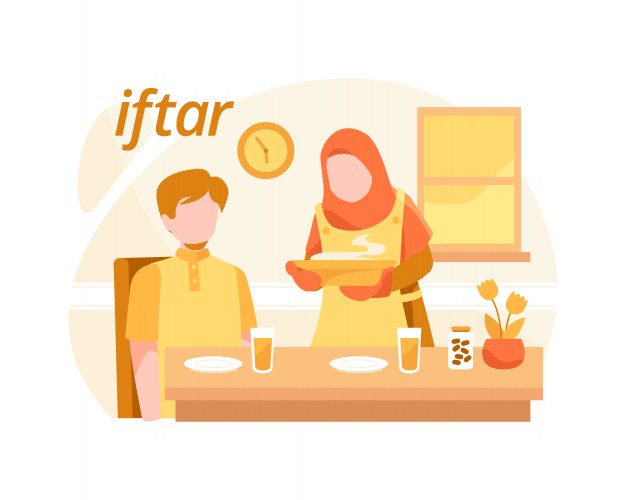
I wake up with a slight cough today. Normally, I would reach for water but I don’t, because I am fasting. It is one of those things.
Being an imam like any other thing comes with its own “challenges”. I have had a member of my congregation call me by 1 am to just “come to their house immediately” without telling me the nature of the emergency. Bearing in mind that I still had to go to work later that day, I had no choice but to rush down.
Other times, I have had parents bring children to me suffering from depression and anxiety issues. It has been my job to walk the fine line between offering them spiritual comfort based on the Sunnah and also making sure that the child receives the appropriate modern medical treatment. That is, encouraging them to go see the appropriate specialist as the case may require.
In some cases, it has also been myself. Contrary to popular belief, Imams too get low iman. The only advantage we have is the knowledge of the scripture with relevant examples of past prophets who have experienced something similar. Reading these stories and seeing similarities helps shake off the feeling and bounce back. Coupled with the fact that I have to constantly remind myself that leaders are meant to lead by example. These two factors help to always make sure that I am not down for too long. It’s also the same scripture by which I motivate myself that I use to help members of my congregation that come seeking help. It becomes easier to help them when you can relate.
I am going to spend the rest of the day joining Zoom calls. I plan to listen to the lectures that I would have normally attended if I wasn’t staying at home.
In the masjid, we have an army of Alfas. During Ramadan when we have an increased number of prayers, we rotate who leads the prayers. So, someone leads Ishai, another person leads Taraweeh, another person leads shafi and witr. While another person recites a Juz of the Quran. This division of labour makes it easier for everybody.
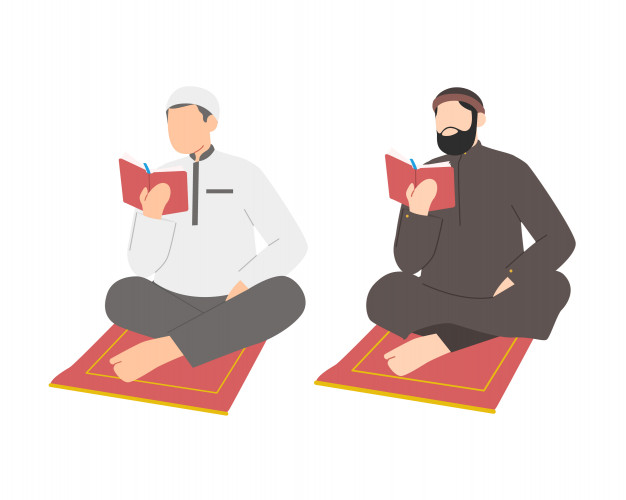
I am the only man in my house. It’s just me, my wife and two daughters. As an imam, even though we no longer gather, it is still my job to encourage members of my congregation over the phone to pray in their own homes. Also, because I am the only man in my house, I am quite literally the imam. So, it means that in addition to leading my congregation virtually, I also have to lead my home. I have found out in the last few days that being the one to lead all these prayers can be exhausting.
Today, after praying shafi and witr, I am quite exhausted. This is the first Ramadan I have had to do without being able to delegate. Even if it’s Ishai. Also, what makes it exhausting is that we try to recite half of a Juz at home. For one person leading all of this, it can be tiring. But may Allah make it easy.
My favourite meal — rice and stew — is what we have for iftar but it is a struggle to keep my eyes open. After the meal, I go to bed sufficiently exhausted.
Today, I have had time to think over some things. It is now clearer to me why congregational prayers are important.
As an imam, the last few days made me realise what energy comes from having a crowd praying behind you. The way I feel exhausted after praying taraweeh in the last few days made me realise this.
I told my wife that in the masjid, I wouldn’t have felt exhausted so soon in Ramadan. It is clear to me that the crowd behind is part of the energizer that makes things easier.
When I am leading taraweeh and I know that there are 100 – 150 people behind me, the knowledge of that keeps pushing me. Also, there are people to rotate the responsibilities with. However, in this case, we are only four at home praying. I have found out that the energizer is missing and that’s why I feel tired easily.
Zoom has been really helpful with keeping in touch and communal feeling, but you can’t pray via Zoom. I am looking forward to things going back to normal. I miss my congregation, I miss the energy they give me. That energy has never been more important than during this Ramadan.
Glossary:
Imam – The person who leads prayers in a mosque.
Rakat – Single unit of Islamic prayer.
Dua – Literally meaning invocation, is an act of supplication. The term is derived from an Arabic word meaning to ‘call out’ or to ‘summon’, and Muslims regard this as a profound act of worship.
Fajr – The Fajr prayer is the first of the five daily prayers (salah) performed daily by practicing Muslims.
Masjid – Mosque.
Madrasa – A school for Islamic instruction.
Alfa – Islamic scholar.
Iman – Faith.
Sharia – Islamic canonical law based on the teachings of the Quran and the traditions of the Prophet (Hadith and Sunna), prescribing both religious and secular duties and sometimes retributive penalties for lawbreaking.
Taraweeh – Additional ritual prayers performed by Muslims at night after the Isha prayer during the holy month of Ramadan. It involves reading one Juz’ (Arabic: جُزْءْ, i.e a section of the Quran 1/30 its length, which generally takes somewhere between 20-60 minutes), and from 8 to 10 cycles of Raka’ah, lasting well over an hour in total.
Iftar – The meal eaten by Muslims after sunset during Ramadan.
Juz – A juzʼ is one of thirty parts of varying lengths into which the Quran is divided. It takes 30 – 60 minutes to finish reciting one.
Ishai – This is the night-time daily prayer performed by practicing Muslims.
Check back every Tuesday by 9 am for more “A Week In The Life Of” goodness, and if you would like to be featured or you know anyone who fits the profile, don’t hesitate to reach out. Reach out to me: hassan@bigcabal.com if you want to be featured on this series.

Ramadan is going to be interesting this year for many reasons. With social distancing and the whole staying at home thing, it’s going to be a long ride.
People have complained about how their faith can’t thrive in isolation. Inspired by a Twitter user, I found a thread of podcasts that can make Ramadan a lot easier for Muslims.
This is the tweet that started everything:
I like this one because of how open minded the presenters are. The episodes are long but worth it. My best for now is the episode with Yahya Raaby where he talks about Ramadan without mosques and learning Arabic in quarantine.
This is a fave. They discuss things from marriage to depression, to creativity, self-care, business. The range here is astounding. Wow. An absolute fave and I can’t decide on my best episode yet. However, one that comes to mind is the episode on gratitude in times of hardship. Loved it!
Everyone loves Mufti because of how compassionate and self aware he is. He tackles serious matters with empathy and that’s all we need in life.
This is for women but I couldn’t help but be moved by the vulnerability. Honest conversations from abuse to depression to jealousy. The honesty is refreshing and it’s a must listen for Muslim women.
I haven’t fully listened to this one but the voice of the host, brother Usman, sounds very soothing and kind. On first listen, I was hooked. The reviews look good so I am looking forward to it.
You can check out more podcasts by clicking here.

Dread it, run from it, Ramadan arrives – My Alfa, circa 2000.
If you grew up in a Muslim home, chances are that at one point or the other, you have been scared silly of Ramadan. Mostly because you were unsure if you could give up (some) pleasure for asceticism. Afterall, Shaitan is singing locked up in some unknown location.
As a child, you had adults to enforce the rules. As an adult, it’s pretty much the wild wild west. So, how is Ramadan different as an adult than as a child?
These are some of the reasons people gave.
“The hardest part of Ramadan as an adult is self-awareness. As a child, the excuse for any shortcoming is blamed on age. As an adult, you come to the sober realization that everything you blamed Satan for, you didn’t need to. I can do bad all by myself.”
“Working or schooling during Ramadan is not fun at all. I highly do not recommend it. And the worst part? you can’t afford to not show up. It’s a paradox; if you have nothing to do, you’ll be bored out of your mind. If you have to work, you’ll be tired out of your mind. Adulting, which way?”
“I wonder how many times I will curse before I realize it is Ramadan. Cursing is how I let off steam in helpless situations. I had better not just read the news because I won’t be able to hold myself. Especially when it’s news about Nigeria and the fuckers called politicians.”
“There was no Twitter growing up, but it is now my escape from the realities of this adult life. Every time I refresh my feed, I have to be Astaghfirullah-ready because people there are badly behaved. So, are you saying I shouldn’t take the medicine for my sorrows? Chai
“Cooking is not fun because when it’s time for iftar, I have lost my appetite. Low-key, I miss someone cooking for me. I miss just walking up to eat without all these senrere.”
“Should I wake up in the night to eat and be sleepy and slow all day at work, or should I sleep well and be hungry and slow all day at work?”
“I can’t wank. I know this is bad but it’s the only thing that makes me feel alive. Especially in this lockdown. As a child, I didn’t know anything like depression or lethargy existed because I was always happy. But now that depression is the theme of my adult life, orgasms are the only thing that makes me feel alive. Even if it’s short-lived. I don’t know how long I can do without it during this period.”
In case you missed it, watch Nigerians talk about their Ramadan struggles below:

This category of people wait till it’s almost time for prayer before leaving the office or work and you can find them always rushing to meet up with prayers. Their mantra when they meet anyone on the road is “have they prayed?”

These people come like 4hours before service, they help to set up, clean, and they usually occupy the front row. Chances are that they are workers in the mosque.

Their mode of operation is to look for where they can rest their backs immediately they get into the mosque. You find them paying earnest attention one minute, and the next minute, they have dozed off. At one point everyone has been a sleeper.

Their default line is usually “I dey mosque, make I call you back.” They can do this for like 20 calls. From their phone pouches, oud perfume, and traditional attire, you just know they are businessmen.
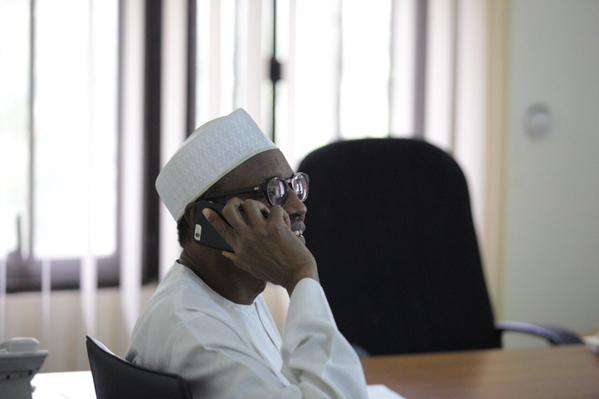
Little children running about that have no interest in whatever is going on. You can always catch their parents chasing them up and down. Their job is to run and climb the backs of adults and make weird noises. The tired faces of their parents tell you all you need to know about them.
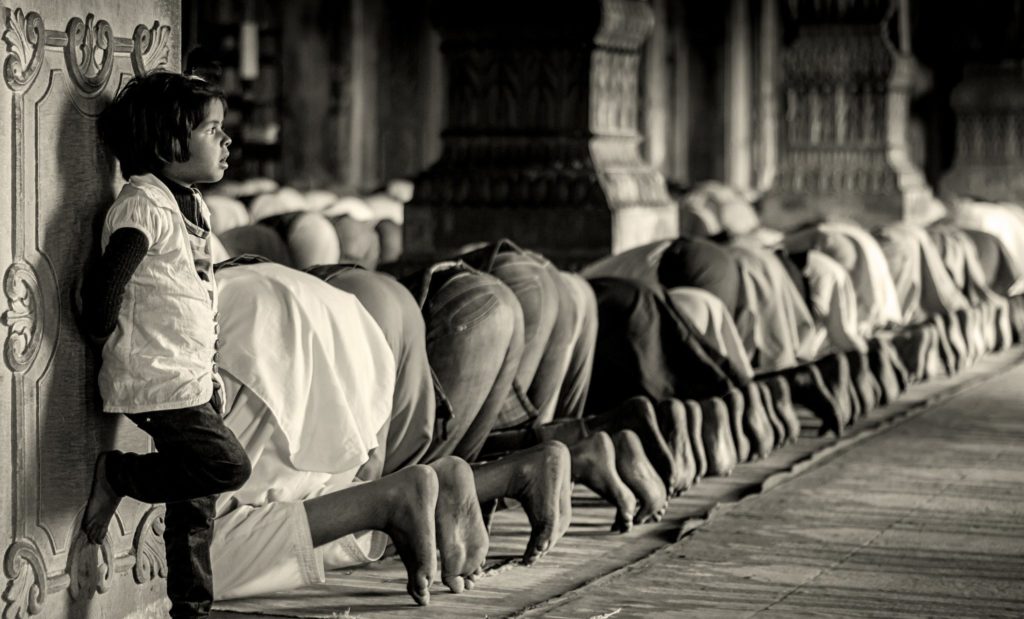
They spend 10minutes after ablution looking for the best place to keep their shoes. Always watching over it and making sure no one places their shoe on theirs. Some even go as far as putting it on the window near where they want to pray.
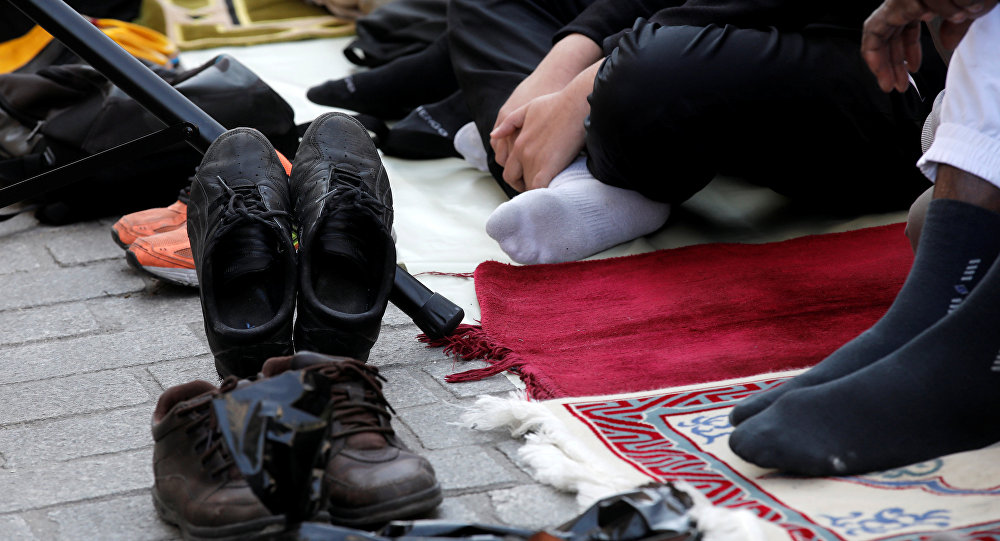
They know everyone in the mosque and they are always greeting up and down. Look left, Salam Alaykum, look right, Salam Alaykum. The whole mosque knows them and they know the whole mosque. If you are rushing somewhere after Jumah, they will definitely delay you.
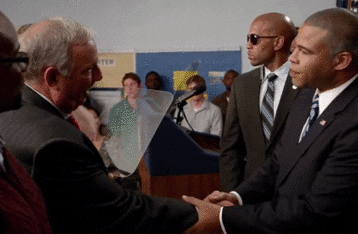
They are usually talking in loud voices about something from work and what not while the sermon is going on. They don’t understand the bad eye you try to give them for silence and they are oblivious to how loud they are.

May Allah bless these ones. Always refilling everyone’s kettle for ablution, and also, if there is a need to buy water for ablution, they always lead the charge. Always ready to assist in anything the mosque needs.
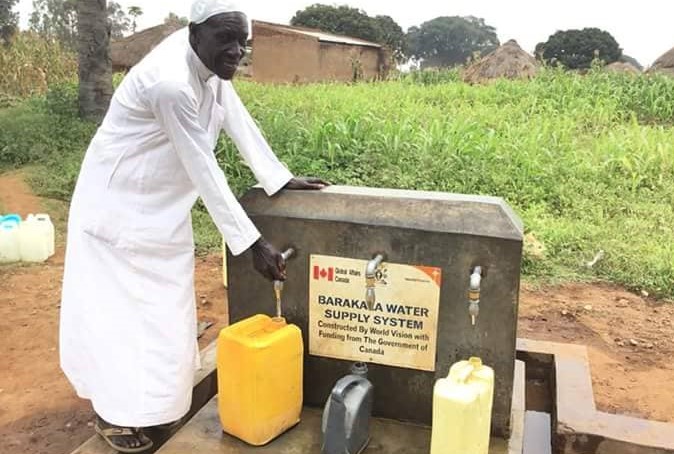
Is any Jumah after service complete without you buying nice baffs after? Different caps, jalamia, hijab, and incense to upgrade your halal style on sale. Also, this is the best place to buy yummy dates to eat after prayers.

Did we miss any? Let us know in the comments section.

